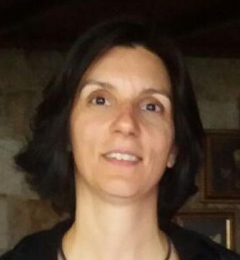Research interests
My research on geotechnical infrastructure encompasses:
-
Application of geosynthetics in civil engineering
-
Soil reinforcement and ground improvement
-
Reinforced soil design
-
Soil-reinforcement interaction
-
Durability and endurance of geosynthetics
-
Constitutive models for reinforced soil
-
Geosynthetics in railways and in fluvial/coastal environments
My research on geoengineering education encompasses:
-
Active learning. Cooperative and collaborative learning
-
Problem- and project-based learning
-
Feedback practices
-
Outreach
The application of geosynthetics in civil engineering works, and particularly in geotechnical engineering, has been increasing thus the questions regarding their durability, as well as the definition of reduction factors to use in their design, are becoming more and more relevant. I have been studying the durability and endurance of geosynthetics, namely regarding installation damage, tensile creep and creep rupture, compressive creep and abrasion and investigating possible synergisms between them. For that, I have developed several laboratory apparatus prototypes and I have carried out several field trials.
Traditionally, good quality granular materials are used in reinforced soil applications. However, the pressure to achieve sustainable but resilient structures is high. Using marginal / lower quality soils and guaranteeing stability can be a challenge. Some of my current research topics include studying the reinforcement of marginal / lower quality soils using geosynthetics and centrifuge testing of reinforced soil.
The performance of reinforced soil is highly dependent on the soil-geosynthetic interaction mechanisms and properties, as it affects the effectiveness of the transference of tensile stresses from the soil to the reinforcements. In reinforced soil structures, when under low confining stresses, geosynthetics can suffer pull-out (relative movement of the reinforcement respectively to the surrounding soil). When geosynthetics are placed over an inclined surface and the relative movement is mainly caused by shearing, inclined plane shear tests are used. I have studied the soil-reinforcement interaction mechanisms using pull-out and inclined plane shear tests and how they are affected by the durability of geosynthetics.
Often geosynthetics are used in the construction or rehabilitation of railways within or beneath the ballast or subballast layers. They can act as separators of materials with different particle size distributions, filters, drainage elements and reinforcements. I have been studying the durability issues associated with the demanding conditions of a railway system. I have also done work using the Discrete Element Method (DEM) to the model the settlement behaviour, during cyclic loading, of a ballasted rail track.
Research Projects
Principal investigator:
Endurance durability of geosynthetics (GeoEndurance) - PTDC/ECM/099087/2008 - COMP-01-0124-FEDER-009724; 1 May 2010 – 30 October 2013; Funded by FCT, Fundação para a Ciência e a Tecnologia and COMPETE, Programa Operacional Temático Factores de Competitividade
Very Light Rail Shuttle Between Dudley’s Tourist Attractions. 75K. 20/7/2016 – 19/01/2017. Funded by Rail Safety Standards Board / RSSB1974/13/FR. Lead institution: University of Warwick
Research group
Infrastructure Group
Affiliate research groups
Geomechanics and Environmental Geotechnics
,
Margarida is a collaborator within FEUP - CONSTRUCT
Dr Margarida Fernandes de Pinho Lopes
Engineering, University of Southampton, Southampton Boldrewood Innovation Campus, Burgess Road, Southampton, SO16 7QF
Room Number :
178/3005
